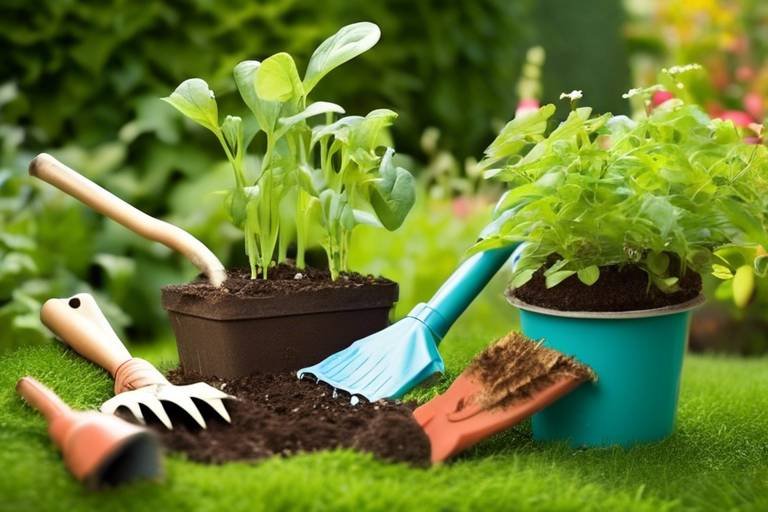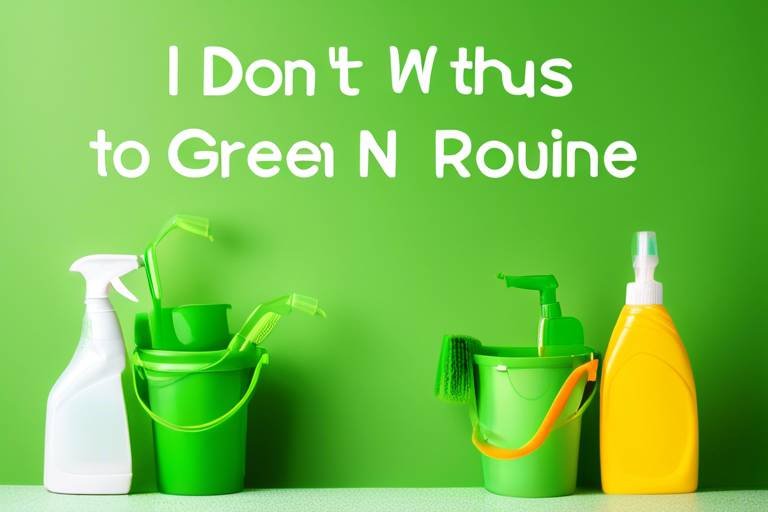10 Tips for Eco-Friendly Gardening
Are you ready to transform your garden into a sustainable oasis that not only benefits the environment but also enhances the beauty of your outdoor space? By incorporating these eco-friendly tips, you can create a harmonious ecosystem that thrives with minimal impact on the planet.
First and foremost, choose native plants that are well-adapted to your region's climate and soil conditions. These plants require less water, pesticides, and fertilizers, making them a low-maintenance and eco-friendly choice. Additionally, native plants provide food and shelter for local wildlife, supporting biodiversity in your garden.
One of the key practices in eco-friendly gardening is composting regularly. By turning your kitchen scraps and yard waste into nutrient-rich compost, you can improve soil health, reduce the amount of organic waste sent to landfills, and decrease the need for chemical fertilizers. Compost acts as a natural fertilizer, enriching the soil and promoting plant growth.
When it comes to water conservation, implementing water-saving techniques is essential. Mulching around plants helps retain moisture in the soil, drip irrigation delivers water directly to the roots, and rainwater harvesting allows you to collect and reuse rainwater for irrigation. These practices not only reduce water usage but also promote efficient plant growth and minimize runoff.
To maintain a healthy garden ecosystem, attracting beneficial insects is crucial. Planting flowers that appeal to ladybugs, lacewings, bees, and other beneficial insects encourages natural pest control without the need for harmful chemical pesticides. These insects prey on garden pests, helping to keep your plants healthy and pest-free.
Another eco-friendly practice is crop rotation, which involves changing the location of plantings each season. This technique helps prevent soil depletion, reduces the buildup of pests and diseases, and promotes plant diversity in your garden. By rotating crops, you can create a more resilient and productive garden over time.
When dealing with pests, it's important to use organic pest control methods instead of harsh chemical pesticides. Options like neem oil, insecticidal soaps, and companion planting offer effective pest management solutions without harming beneficial insects or contaminating the environment. These natural alternatives help maintain a healthy balance in your garden.
To reduce the environmental impact of your garden, consider minimizing lawn areas and replacing them with native plants, vegetable gardens, or wildflower meadows. Lawns require significant maintenance, water, and chemical inputs, whereas diverse plantings can provide habitat for wildlife, support pollinators, and enhance the overall beauty of your garden.
Supporting pollinators like bees, butterflies, and hummingbirds is essential for successful fruit production in your garden. By planting a variety of flowering plants that attract pollinators, you can ensure that these important creatures have access to food and shelter. Pollinators play a critical role in plant reproduction, making them valuable allies in your eco-friendly gardening efforts.
Embrace sustainable practices in every aspect of your gardening routine, from using organic fertilizers to avoiding synthetic chemicals and incorporating mulching. These practices help create a healthy and balanced ecosystem in your garden, supporting plant growth, soil health, and overall sustainability. By following these eco-friendly tips, you can cultivate a garden that not only flourishes but also contributes positively to the environment.

Choose Native Plants
Choosing native plants for your garden is a crucial step in creating an eco-friendly and sustainable outdoor space. Native plants are well-adapted to the local climate, soil conditions, and wildlife, making them resilient and low-maintenance options for your garden. By incorporating native plants into your landscape, you can conserve water, reduce the need for chemical inputs, and provide essential habitats for local wildlife.
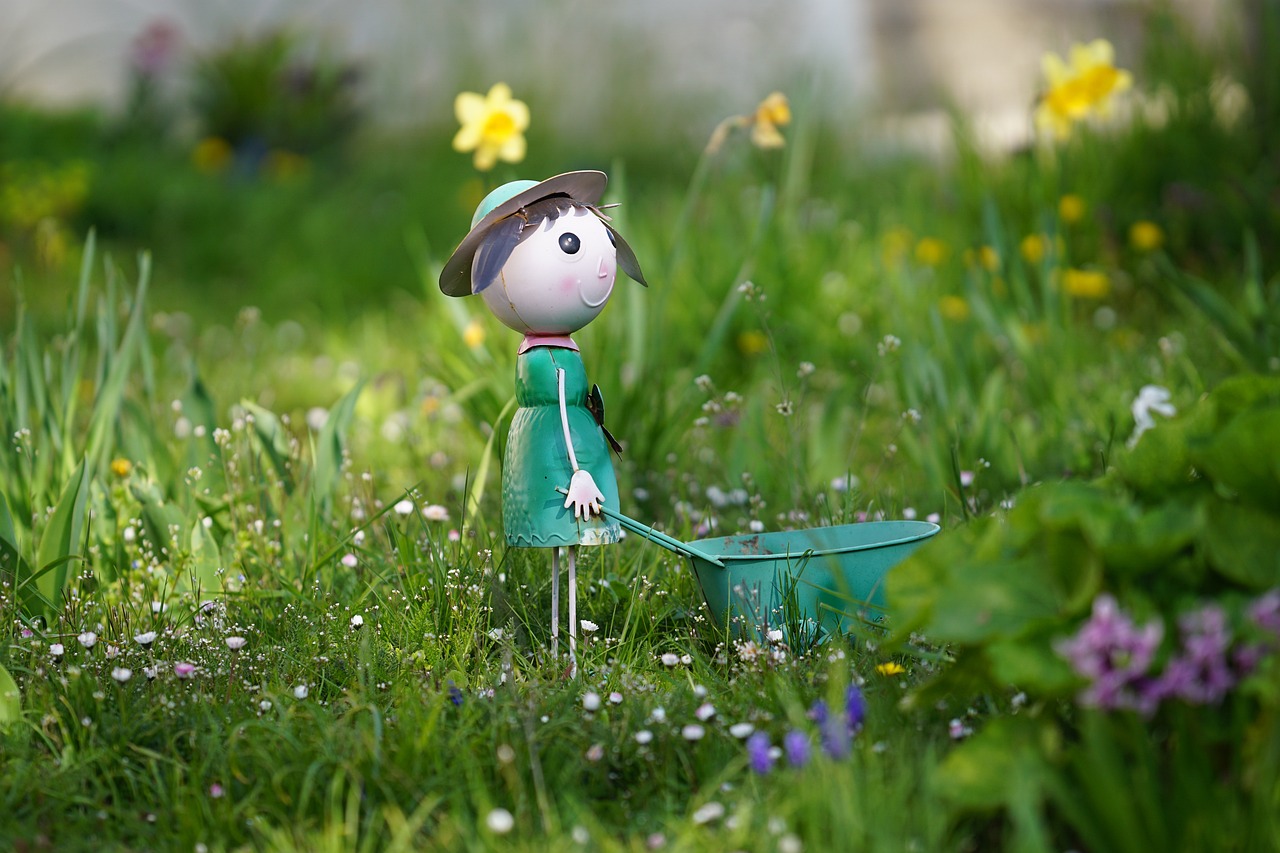
Compost Regularly
Composting regularly is a fundamental practice in eco-friendly gardening that not only benefits your plants but also the environment. By utilizing kitchen scraps, yard waste, and other organic materials, you can create nutrient-rich compost that acts as a natural fertilizer for your garden.
Composting helps enrich the soil, improving its structure and fertility, which in turn promotes healthy plant growth and reduces the need for chemical fertilizers. It also aids in retaining moisture in the soil, reducing water usage and promoting drought resistance in your garden.
Furthermore, composting plays a vital role in waste reduction by diverting organic materials from landfills, where they would otherwise release harmful greenhouse gases when decomposing. By composting, you are contributing to the reduction of methane emissions and overall waste management.
When composting, it's essential to maintain a proper balance of green (nitrogen-rich) and brown (carbon-rich) materials to facilitate the decomposition process. Green materials include fruit and vegetable scraps, coffee grounds, and grass clippings, while brown materials consist of dry leaves, straw, and newspaper.
Creating a compost pile or using a compost bin allows for the natural breakdown of organic matter through the activity of beneficial microorganisms, turning it into a valuable resource for your garden. Regularly turning the compost pile helps aerate the materials, accelerating decomposition and ensuring a consistent supply of nutrient-rich compost for your plants.
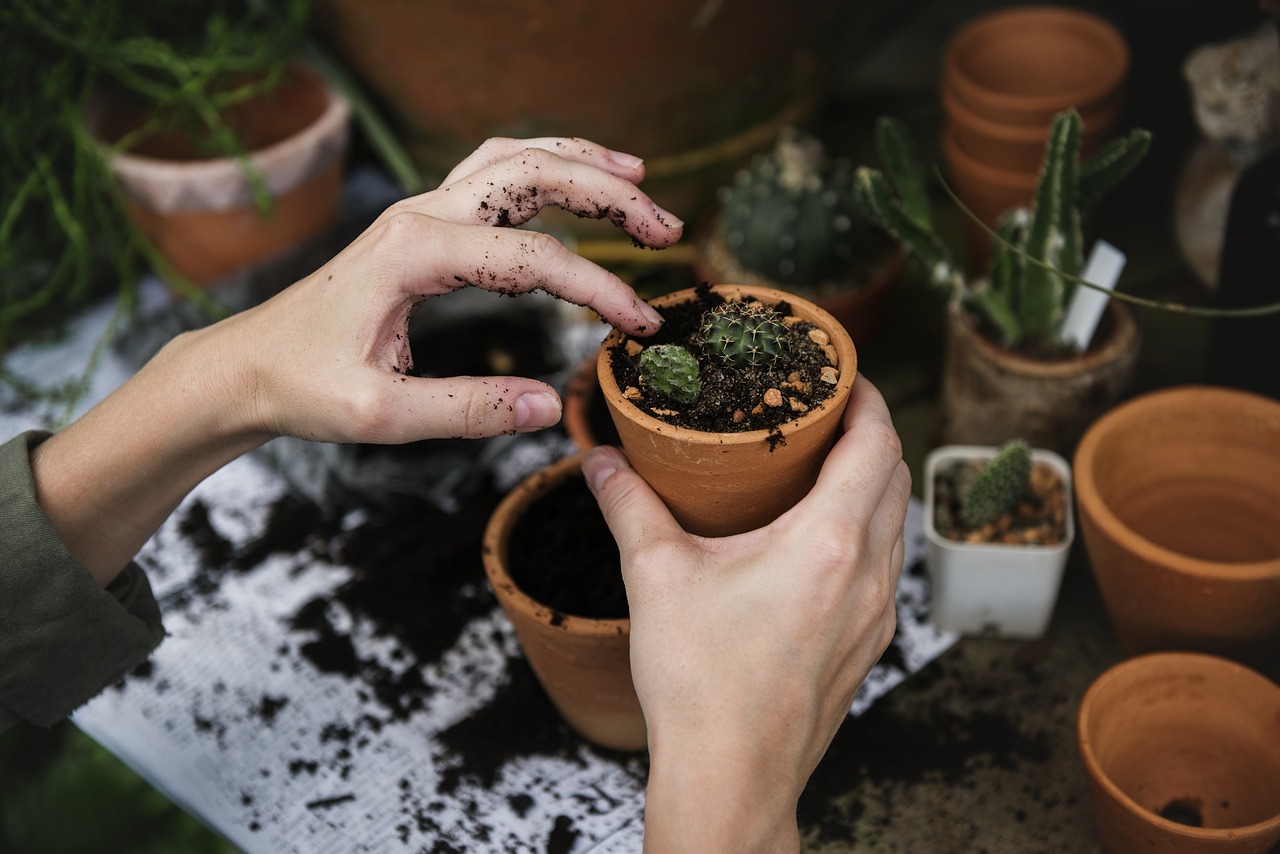
Conserve Water
Learn how to create a sustainable garden with these eco-friendly tips that promote biodiversity, conserve water, reduce waste, and support a healthy ecosystem.
Water is a precious resource, especially in gardening. By implementing water-saving techniques, you not only reduce your water usage but also promote efficient plant growth. One effective method is mulching, which helps retain moisture in the soil and reduces evaporation. Additionally, drip irrigation delivers water directly to the plant roots, minimizing wastage. Another eco-friendly practice is rainwater harvesting, where you collect rainwater in barrels or tanks for later use in your garden. This not only conserves water but also reduces your reliance on treated water sources.
Moreover, grouping plants with similar water needs together can help optimize watering efficiency. By creating hydrozones, you can tailor your watering schedule to meet the specific requirements of each plant group, reducing water waste. Another way to conserve water is by monitoring soil moisture levels regularly. This allows you to water only when necessary, preventing overwatering and water runoff, which can carry pollutants into waterways.
Consider investing in a soaker hose or a smart irrigation system that adjusts watering based on weather conditions and plant needs. These technologies not only save water but also promote healthier plant growth by providing the right amount of moisture at the right time. Remember, every drop counts when it comes to conserving water in your garden!
Q: How can I tell if my plants are getting enough water?
A: One way to check is by inserting your finger into the soil. If it feels dry, it's time to water. You can also observe your plants for signs of wilting or yellowing leaves, indicating they may need more water.
Q: Is it better to water in the morning or evening?
A: It's generally recommended to water in the morning to allow plants to absorb moisture before the heat of the day. Evening watering can lead to prolonged leaf wetness, increasing the risk of fungal diseases.
Q: How can I reduce water waste in my garden?
A: Using mulch, grouping plants with similar water needs, and investing in water-efficient irrigation systems are effective ways to minimize water waste in your garden.
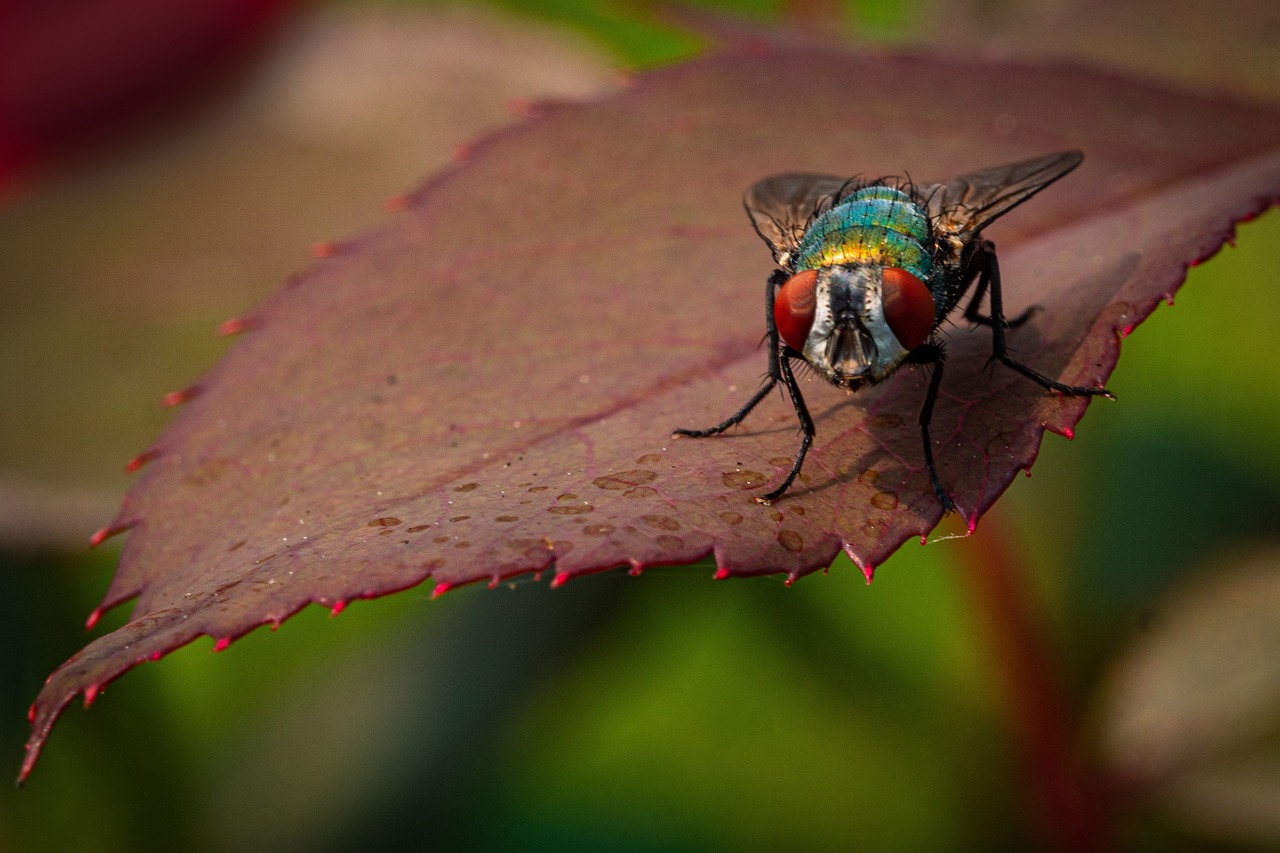
Attract Beneficial Insects
Learn how to create a sustainable garden with these eco-friendly tips that promote biodiversity, conserve water, reduce waste, and support a healthy ecosystem.
When it comes to maintaining a thriving garden ecosystem, attracting beneficial insects is key. These tiny garden helpers play a crucial role in natural pest control, ensuring a balanced and healthy environment for your plants to flourish. By planting a variety of flowers that specifically attract beneficial insects like ladybugs, lacewings, and bees, you can create a welcoming habitat that supports their presence.
Imagine your garden as a bustling insect metropolis, with different species working together like a well-oiled machine. Ladybugs munching on pesky aphids, lacewings feasting on harmful caterpillars, and bees diligently pollinating flowers. It's like having your very own pest control squad on duty, all thanks to the simple act of planting the right flowers.
Creating a diverse garden landscape with an array of flowering plants not only adds beauty but also serves as a buffet for beneficial insects. These tiny allies not only help keep pest populations in check but also contribute to the overall health of your garden by pollinating plants and maintaining a natural balance.
Picture your garden as a harmonious ecosystem where every insect has a role to play, much like a well-choreographed dance. By attracting beneficial insects, you're not only reducing the need for harmful chemical pesticides but also fostering a more sustainable and resilient garden environment.
So, next time you're planning your garden layout, consider the beneficial insects that could become your allies in the fight against pests. With a little strategic planting and some floral diversity, you can invite these helpful insects to take up residence in your garden and reap the rewards of a balanced and thriving ecosystem.
Q: How can I attract beneficial insects to my garden?
A: To attract beneficial insects, plant a variety of flowers such as marigolds, sunflowers, lavender, and dill that are known to attract ladybugs, lacewings, and bees. Providing a water source like a shallow dish with pebbles can also help attract beneficial insects to your garden.
Q: Will attracting beneficial insects harm my plants?
A: No, attracting beneficial insects will not harm your plants. These insects primarily feed on harmful pests, helping to keep their populations in check without causing damage to your plants.
Q: How do beneficial insects contribute to a healthy garden ecosystem?
A: Beneficial insects contribute to a healthy garden ecosystem by providing natural pest control services, pollinating plants, and maintaining a balanced environment free from harmful pest infestations.

Practice Crop Rotation
When it comes to maintaining a healthy and productive garden, one essential eco-friendly practice to implement is crop rotation. Crop rotation involves changing the type of crops grown in specific areas of your garden each planting season. This technique offers numerous benefits that contribute to the overall sustainability of your garden ecosystem.
By rotating your crops, you can effectively prevent soil depletion by varying the nutrient needs of different plant species. Plants have unique nutrient requirements, and rotating crops helps ensure that the soil remains balanced and fertile. This practice also helps control pests and diseases naturally as certain pests and diseases that target specific plants are less likely to build up in the soil over time.
Furthermore, crop rotation promotes plant diversity, which is key to creating a resilient and thriving garden. Different plant species attract various beneficial insects and microbes to the soil, enhancing the overall health of your garden ecosystem. Additionally, rotating crops can improve soil structure and reduce the need for synthetic fertilizers, ultimately leading to a more sustainable and eco-friendly garden.
When planning your crop rotation strategy, consider grouping plants with similar nutrient needs together and rotating them with crops that have different requirements. This approach helps maximize the use of nutrients in the soil while minimizing the risk of depleting specific nutrients. Additionally, rotating crops from different plant families can help break pest and disease cycles, reducing the need for chemical interventions.
Overall, practicing crop rotation is a simple yet effective way to promote soil health, enhance plant diversity, and support a thriving garden ecosystem. By incorporating this eco-friendly technique into your gardening routine, you can create a more sustainable and productive garden for years to come.

Use Organic Pest Control
When it comes to maintaining a healthy and sustainable garden, using organic pest control methods is key. By avoiding chemical pesticides and opting for natural alternatives, you can effectively manage pests without harming the beneficial insects that play a crucial role in maintaining a balanced ecosystem.
One popular organic pest control method is neem oil, which is derived from the seeds of the neem tree. Neem oil acts as a natural insecticide, disrupting the growth and reproduction of pests while being safe for beneficial insects like bees and butterflies.
Insecticidal soaps are another effective organic pest control option. These soaps work by suffocating soft-bodied pests like aphids, mites, and mealybugs without leaving harmful residues on your plants.
Additionally, companion planting is a natural way to deter pests and attract beneficial insects to your garden. By strategically planting companion plants that repel pests or attract predators of common garden pests, you can create a more balanced and pest-resistant garden ecosystem.
Remember, a healthy garden is a diverse garden. By incorporating organic pest control methods into your gardening routine, you can protect your plants from pests while promoting a thriving ecosystem that benefits both flora and fauna.
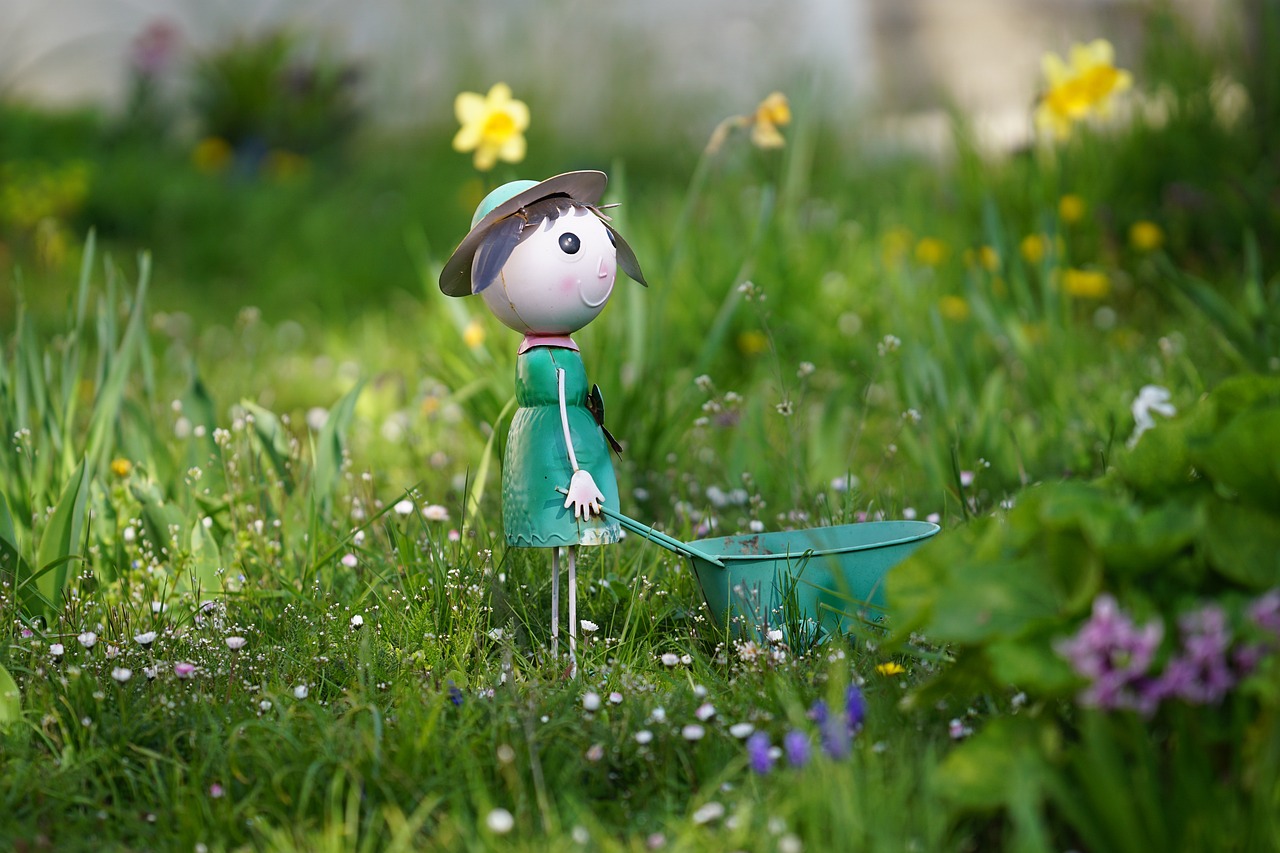
Reduce Lawn Areas
When it comes to eco-friendly gardening, one effective tip is to in your garden. Lawns require significant maintenance, water, and often chemical inputs to keep them lush and green. By minimizing the size of your lawn and replacing it with more sustainable alternatives, you can not only reduce your environmental impact but also create a more diverse and vibrant garden ecosystem.
Instead of dedicating large portions of your yard to traditional grass lawns, consider planting native plants, vegetable gardens, or wildflower meadows in those areas. Native plants are well-suited to your local climate and require less water and maintenance compared to exotic species. Vegetable gardens provide fresh produce while promoting biodiversity, and wildflower meadows attract pollinators and support local wildlife.
By reducing lawn areas, you can also decrease your water consumption significantly. Lawns are notorious for their thirst, requiring frequent watering to stay green. By replacing some of that turf with drought-tolerant plants and other ground covers, you can cut down on your water usage and contribute to water conservation efforts in your community.
Furthermore, traditional lawns often rely on chemical inputs such as pesticides and fertilizers to stay healthy and weed-free. By reducing the size of your lawn, you can minimize the need for these harmful chemicals, creating a safer environment for your family, pets, and local wildlife. Embracing a more natural approach to landscaping can lead to a healthier and more sustainable garden overall.
Consider the visual appeal of your garden as well. While lawns can provide a neat and uniform look, incorporating a variety of plants and textures can add interest and beauty to your outdoor space. By diversifying your garden with different types of plants, you can create a more dynamic and visually engaging landscape that changes with the seasons.

Support Pollinators
Supporting pollinators is crucial for a thriving garden ecosystem. By planting a diverse range of flowering plants, you can attract pollinators such as bees, butterflies, and hummingbirds, ensuring successful pollination and fruit production in your garden. These pollinators play a vital role in transferring pollen from one flower to another, enabling plants to reproduce and produce fruits and seeds.
Imagine your garden as a bustling marketplace where bees and butterflies are the hardworking merchants, carrying essential goods from one stall to another. Without them, the exchange of goods would come to a standstill, leading to a barren market devoid of life and abundance. By providing nectar-rich flowers and creating a welcoming environment for pollinators, you are nurturing the lifeblood of your garden, ensuring a bountiful harvest and a vibrant ecosystem.
Furthermore, supporting pollinators goes beyond the boundaries of your garden. It contributes to the overall health of the environment by promoting biodiversity and preserving the delicate balance of nature. As pollinators move from flower to flower, they facilitate the reproduction of plants, including many food crops essential for human consumption. By supporting these essential creatures, you are not only enhancing the beauty of your garden but also playing a part in sustaining the interconnected web of life on our planet.
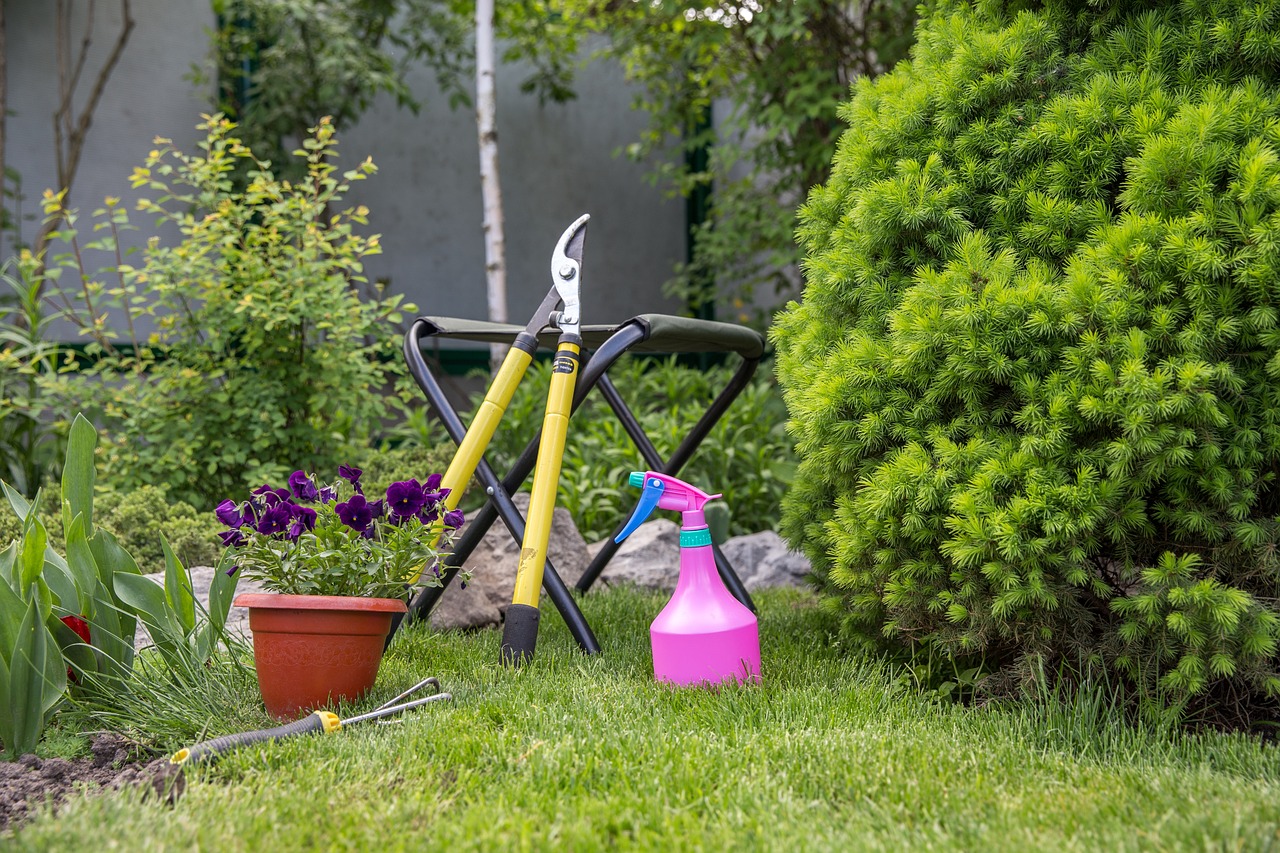
Embrace Sustainable Practices
Embracing sustainable practices in your gardening routine is not only beneficial for the environment but also for the health of your garden. By adopting eco-friendly methods, you can create a harmonious ecosystem that thrives with minimal impact on the planet. One key aspect of sustainable gardening is the use of organic fertilizers instead of synthetic chemicals. Organic fertilizers, such as compost and manure, enrich the soil with essential nutrients without introducing harmful substances that can disrupt the delicate balance of the ecosystem.
Another sustainable practice to consider is mulching, which involves covering the soil with organic materials like straw, leaves, or grass clippings. Mulching helps retain moisture in the soil, suppresses weed growth, and improves soil structure over time. Additionally, mulch acts as a natural insulator, regulating soil temperature and providing a cozy environment for beneficial microorganisms to thrive.
Furthermore, companion planting is a sustainable gardening technique that involves growing different plant species together to achieve mutual benefits. For example, planting marigolds alongside tomatoes can help repel pests and attract beneficial insects, creating a natural pest management system. By diversifying plantings and fostering symbiotic relationships between different species, you can enhance the resilience and productivity of your garden without relying on chemical interventions.
When it comes to pest control, embracing sustainable practices means prioritizing natural solutions over chemical pesticides. Beneficial insects, such as ladybugs and praying mantises, can act as natural predators, keeping pest populations in check without the need for harmful chemicals. Additionally, introducing birdhouses or bat boxes in your garden can attract insect-eating birds and bats, offering a sustainable and eco-friendly pest control solution.
In essence, embracing sustainable practices in your gardening endeavors involves a holistic approach that considers the interconnectedness of all living organisms in the garden ecosystem. By nurturing the soil, supporting beneficial insects, and fostering biodiversity, you can create a thriving garden that not only sustains itself but also contributes to the overall health of the environment.
Frequently Asked Questions
- What are the benefits of choosing native plants for my garden?
Choosing native plants for your garden has numerous benefits. They require less water, pesticides, and fertilizers, making them more sustainable and eco-friendly. Additionally, native plants provide habitats for local wildlife, promoting biodiversity in your garden ecosystem.
- How does composting help in eco-friendly gardening?
Composting is a key practice in eco-friendly gardening as it helps reduce landfill waste by utilizing kitchen scraps and yard waste to create nutrient-rich compost. This compost enriches the soil, reduces the need for chemical fertilizers, and promotes healthy plant growth, making it an essential sustainable gardening technique.
- Why is conserving water important in gardening?
Conserving water in gardening is crucial for promoting sustainable practices. By implementing water-saving techniques such as mulching, drip irrigation, and rainwater harvesting, you can reduce water usage, minimize water waste, and support efficient plant growth while conserving this precious resource for future generations.
- How can I attract beneficial insects to my garden?
You can attract beneficial insects to your garden by planting flowers that they are attracted to, such as ladybugs, lacewings, and bees. These insects help control pests naturally, maintaining a healthy garden ecosystem without the need for harmful chemical pesticides, making them valuable allies in sustainable gardening.
- What is the significance of supporting pollinators in a garden?
Supporting pollinators in your garden is essential for successful pollination and fruit production. By planting a variety of flowering plants that attract bees, butterflies, and hummingbirds, you ensure the health and productivity of your garden, contributing to a thriving ecosystem and sustainable food production.

